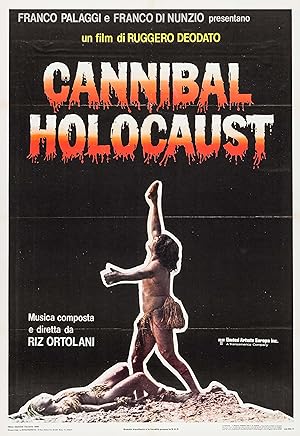Details
Cannibal Holocaust (1980) is a gripping horror film set in the Amazon rainforest. In 1979, a group of four young Americans traveled deep into the unexplored areas of the jungle to make a documentary about cannibalistic indigenous tribes. However, they vanished without a trace, and no one has heard from them in two months.
With growing concern, renowned anthropologist Professor Harold Monroe and his team, including the seasoned guide Chaco Losojos and his assistant, embark on a daring mission to find the missing filmmakers. Their journey takes them into the heart of the Green Inferno, the treacherous depths of the Amazon rainforest.
As the team delves deeper into the jungle, they encounter the Yakumos, a tribe known for their savage practices. The anthropologist becomes witness to the brutal rituals and violence of the tribe, which shocks him to the core. He must confront the harsh realities of the human condition and question the ethics of their own mission.
Cannibal Holocaust is a thought-provoking exploration of the clash between Western civilization and indigenous tribes. It pushes the boundaries of horror and raises questions about media ethics and exploitation. Director Ruggero Deodato uses a blend of found footage and traditional narrative to create a chilling and immersive experience.
This film is not for the faint of heart. Viewer discretion is advised due to its graphic violence and disturbing content. Cannibal Holocaust is a must-watch for horror enthusiasts looking for a thrilling and provocative cinematic experience.
Also Known As:
Cannibal HolocaustRelease Date:
21 Jun 1985Writers:
Gianfranco Clerici, Giorgio Stegani

